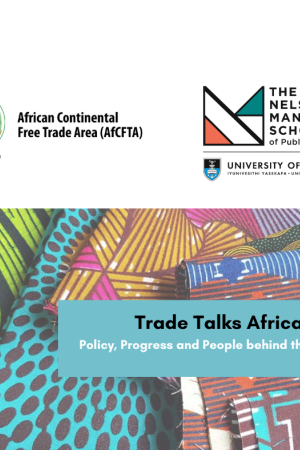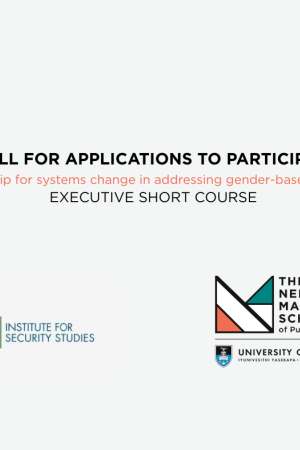The Nelson Mandela School of Public Governance at the University of Cape Town (UCT) and Sciences Po’s Paris School of International Affairs (PSIA), two highly regarded institutions in public governance and international affairs, are launching a new dual master’s degree set to begin in January 2027. This dual master’s programme combines academic excellence and applies policy training in two dynamic political and institutional environments.
The Nelson Mandela School is a premier African institution dedicated to educating public sector leaders and advancing knowledge in governance, public policy and implementation. And the Paris School of International Affairs trains future global leaders to address the most pressing challenges of our time. The UCT- Sciences Po Dual Degree prepares graduates for careers in international development, governance, and public policy across Africa, Europe and beyond.
Objectives and skills
The Master of Development Policy and Practice is a dual degree delivered across two continents, combining academic excellence and applied training in Africa and Europe. Students are immersed in two distinct policy and institutional contexts — Cape Town and Paris — gaining first-hand insight into how development policy is designed, implemented, and adapted to local realities.
The contrasting governance systems, historical paths, and development priorities of France and South Africa provide a rich foundation for comparative learning. Students explore how policy frameworks evolve, how state institutions respond to complex challenges, and how development strategies can be made more inclusive, accountable, and effective.
Students will gain the ability to:
- Understand and navigate development policy processes in both Global North and Global South contexts, from agenda-setting and institutional design to implementation and impact evaluation.
Engage critically with global development debates, grounded in two dynamic policy laboratories — Cape Town and Paris — and develop practical skills for shaping and delivering policy in diverse institutional environments.
Programme overview: Two years, full-time. The programme is in English. Download programme overview from here (pdf).
Structure
The programme consists of six substantive courses and two research courses, plus the Research Project.
The programme is structured with a combination of in-person block release segments and online classes. Each semester begins with a two-week intensive contact session held in Cape Town, known as the block release segment. It is compulsory to attend the block release in person. This is followed by online classes conducted after hours on weekdays, spanning over six weeks.
Duration
- Full-time: The programme is completed full-time over one year, divided into four terms, each spanning six weeks. Download full-time course structure.
- Part-time: The programme is completed over two years, divided into eight terms, spread across the duration of the programme. Download part-time course structure.
Application
All postgraduate applications must be made online via the UCT application portal.
Along with your details, you will need to submit the following:
- Current CV with referee details
- Certified academic transcripts
- A motivational letter
Semester 1 (January to June of year 1)
• Students begin the programme in Cape Town in January, where they complete the first semester of the Master of Development Policy and Practice at UCT.
Semester 2 (August to December of year 1)
Semester 3 (January to June of year 2)
• Students spend a year in Paris at Sciences Po, where they complete two semesters of study in one of the following Master’s programmes at PSIA:
• International Security
• International Governance and Diplomacy
• International Economic Policy
• International Development
• Human Rights and Humanitarian Action
• Environmental Policy
• International Energy Transitions
Whilst at PSIA, students will have access to methodology courses and a Master's thesis writing seminar; they will also receive support if they wish to conduct fieldwork in France or another EU country.
Semester 4 (July to November of year 2)
• Students return to UCT for their final (fourth) semester to complete both coursework and a research component, culminating in submitting a master’s dissertation at UCT.
Provided all course requirements have been met, students will graduate after two years with two master’s degrees, one granted by UCT and the other by Sciences Po.
Validation and Degree
Students are registered at Sciences Po and UCT over the two years and have access to the student services of both universities.
Students must validate coursework under the requirements of the university at which they are studying each year.
• 60 ECTS/ during the year (two semesters) at Sciences Po
• 90 ECTS/180 South African NQF credits during the two semesters at UCT (at least 95 South African credits in semester 1 and 85 in semester 4)
To earn both degrees, students must validate the academic requirements of both universities.
Admissions
This dual degree is open to candidates worldwide. It is intended for aspiring professionals interested in public or private sector careers with an international perspective. Candidates for these dual degrees apply directly on the Sciences Po website (online application only).
Tuition and Fees
Students pay their fees:
• To UCT for semester 1 and semester 4
• To Sciences Po for semester 2 and semester 3
Frequently Asked Questions
Students must submit one application to Sciences Po. Apply through Sciences Po (primary application):
- Applications are submitted via the Sciences Po online admissions portal
- During your application, you must select the Dual Degree with the University of Cape Town (UCT).
Applications typically open one year in advance of the programme start date.
Applicants must meet the admission requirements for both UCT and Sciences Po. For the UCT MDPP, applicants must meet the following criteria:
- Academic Qualification: Hold a bachelor’s degree or an equivalent NQF Level 8 qualification. Must obtain at least 65% GPA.
- Professional Experience: It is advantageous to have professional experience, preferably related to governance and development.
Admission is highly competitive and based primarily on:
- A strong academic foundation.
- Demonstrated leadership potential and commitment to governance and development.
Students are required to pay tuition fees at both institutions:
- UCT fees for Semester 1 and Semester 4
- Sciences Po fees for Semesters 2 and 3
Fee schedules are updated annually. Students should consult each university’s fee booklet and plan for annual fee increases.
Yes. Students will receive separate invoices from UCT and Sciences Po. Payments must be made according to each institution’s deadlines and payment methods.
Yes, funding options may be available through:
- Sciences Po scholarships (merit-based and need-based)
- UCT Postgraduate Funding Office bursaries (limited and competitive)
External funders, including government or private scholarships - students are encouraged to explore funding at both institutions.
Yes. Students must ensure they have the appropriate study/travel documentation:
- A South African study visa for semesters at UCT is required. Consult UCT’s International Academic Programmes Office (IAPO) for more information.
- A French long-stay student visa for semesters at Sciences Po is required.
Students should consult respective embassies/consulates for the most current requirements and processing times.
Neither institution guarantees accommodation. However:
- UCT provides guidance on student housing options, including UCT residences (subject to availability) and private accommodation in Cape Town. Students must apply separately for UCT residences.
- Sciences Po provides information on student residences managed by external partners and offers support through the Housing Assistance Office.
Students are encouraged to secure accommodation well in advance.
The research component is completed in semester 4 during the UCT segment of the dual degree and is designed to build students’ practical research and analytical skills. Students work under supervision on an approved research topic.
Yes. Students need to be available for:
- Meetings with supervisors and other research activities
- Any required in-person seminars or progress presentations
If a student is admitted into the programme, they must formally register at:
- UCT for Semester 1 (January to August) and Semester 4 (July to December)
- Sciences Po for Semesters 2 and Semester 3
Each institution has its own registration systems and deadlines. Students will receive communication from both universities with instructions.
The academic calendars are not aligned:
- UCT typically begins in late January/February and ends in November.
- Sciences Po follows a Northern Hemisphere calendar (September–May).
Students should prepare for a transition period between institutions.
This depends on visa regulations:
- South African study visas may allow limited work hours.
- French student visas typically allow part-time work (up to a set number of hours per year).
Students must check visa conditions and university policies.
Yes.
- In South Africa, students must have approved medical aid cover for study visas.
- In France, students must register for French national health insurance and may need supplementary cover.
Each university provides guidance on accepted plans.
Students must apply for a deferral or leave of absence according to the rules of each institution. Approval is not automatic and may affect funding or visa status.
At UCT, MDPP students are required to register for seven coursework courses and two research component courses.
At Sciences Po, students follow the curriculum of their chosen specialisation.
Course load varies by semester, but students must meet the credit requirements of both institutions to graduate.




